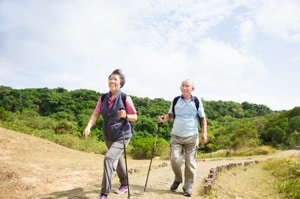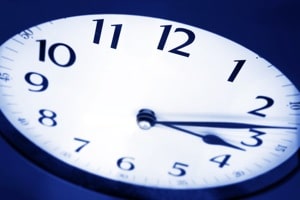Adrenal Stress
Nature is powerful medicine for the body and brain
Have you ever wondered why a walk in the woods makes you feel so good? While that Zen feeling is partly about “getting away from it all,” studies show time in nature is also powerfully therapeutic for the body and brain. More than half of the world’s population lives in an urban setting, and by…
Read MoreSeven reasons exercise recovery can be difficult
If recovering from exercise is so difficult it feels like it’s ruining your days and sapping your motivation, you may be suffering from loss of exercise tolerance. Exercise is supposed to make you feel better and give you more energy, not make you feel worse. The occasional off day is nothing to worry about, but…
Read MoreAdrenals often wrong target with chronic stress
adrenal glands are two walnut-sized glands that sit atop each kidney and secrete stress hormones. Popular supplements include adrenal glandulars (adrenal tissue from animals), minerals, B vitamins, and a variety of herbs — all focused on boosting the ailing adrenal glands. Although this is a sometimes a valid approach, more often the real target for…
Read MoreUnseen health crisis: Caring for yourself when you’re the caregiver
Many caregivers work around the clock juggling their responsibilities, typically without help, and must cope with the sorrow and distress of caring for an ill patient. They can never be away long or take time off, they struggle financially, and do not have time for their own health care, hobbies, or social life. With so…
Read MoreDo you start each morning with a cup of fear?
Do you start your mornings with your treasured “cup of fear?” As far as your body is concerned, that lovely and seemingly harmless cup of coffee could be tantamount to getting mugged or running from a hungry lion. The physiological reactions caused by caffeine that jumpstart you in the morning are the same reactions triggered…
Read MoreAre you working out too much?
A study found that older women (ages 60 to 72) who worked out two to four times a week burned more calories each day and found exercise more pleasurable than those who worked out more. Past studies have found exercising vigorously almost every day causes some people to be less physically active overall compared to…
Read MoreWhy you should start walking today, even if you already work out
Walking shaped the human brain and keeps it healthy We departed from the rest of the animal kingdom when we evolved to walk upright on two legs. This adaptation freed our arms and allowed us to conserve energy while moving over long distances, giving us more endurance than any other animal on the planet. The ability to…
Read MoreLesser known causes of anxiety
GAD autoimmunity and anxiety GAD stands for glutamic acid decarboxylase, an enzyme that triggers production of the brain’s primary calming chemical, called GABA. Some people develop an autoimmune reaction to GAD, which means their immune system erroneously attacks and destroys it. As a result, they can’t make enough GABA to calm the brain and anxiety…
Read MoreWhy sleep is more difficult for women
Female hormone imbalances and sleep problems When a woman enters perimenopause, her production of estrogen and progesterone begins to decline. Ideally the adrenal glands, which produce stress hormones, take over production of these hormones to ensure a smooth transition into menopause. Unfortunately, most women today enter perimenopause (pre-menopause) in a state of chronic stress and…
Read MoreWake up at 3 a.m. and can't fall back asleep? Consider low blood sugar
Why you wake up at 3 a.m. The brain is highly active at night, transforming short-term memory into long-term memory and carrying out repair and regeneration, and it depends on a steady supply of energy to do these tasks. When you sleep at night your body goes into a fasting state. In order not to…
Read More






